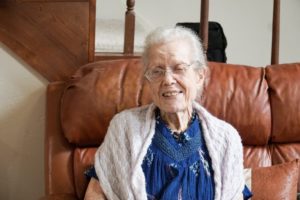Amanda Evans
Service Director, Occupational Therapist

Part 3

Do you know what Occupational Therapy is?
— City of Doncaster Council (@MyDoncaster) February 25, 2020
Well here are some of our staff to explain...👌 pic.twitter.com/xhGsAON5cQ
Next, we have an example from Sarah Jackson from Rotherham Adult Social Care:
Sarah offers specialist Occupational Therapy advice and support to the Commissioners of Learning Disability and Autism when sourcing, adapting or building premises to provide suitable homes for residents of Rotherham with specialist and/or complex needs.
Sarah offers detailed assessment of the individual’s needs including:
Sarah’s role supports people with Learning Disabilities and Autism to find accommodation that enables them to live as independently and safely as possible, and with choice and dignity.
By working closely with Council and Health colleagues, Sarah has improved the accommodation and environments offered to people with complex needs. She has assisted other Services with the design and specification of new homes, as well as adapting existing properties, to assist with providing the best offer for individual and group projects.
Sarah's role supports people with Learning Disabilities and Autism to find accommodation that enables them to live as independently and safely as possible, and with choice and dignity
An Occupational Therapist is trained to enable people to live as independently as possible and access meaningful occupation to maintain their mental wellbeing.
In her role, Sarah will assess an individual’s needs and preferences and to ensure these are considered throughout the planning of their accommodation needs. This includes not only the physical environment, but also a person’s sensory and emotional needs.
She has brought an attention to detail that has been invaluable to the outcomes of people’s move to a new home and supported their families, especially when the person lacks capacity to make decisions for themselves. This has also required an understanding of best practice in design and sufficient technical knowledge to make appropriate recommendations.
Sarah’s knowledge has been recognised across the South Yorkshire and Bassetlaw Integrated Care System and she has been contributing to the South Yorkshire Learning Disability and Autism Housing Action Plan Design and Capital Project Team. Within this project, she has contributed to the development of a regional new build specification for designing homes.
Her specialist knowledge and her individual skills are now helping to improve the lives of people across our region for this client group.

Finally, we have an example from Jenny Sweeney, Social Care Occupational Therapist at Kirklees Council.
The Social Care Occupational Therapy (SCOT) team was formed in November 2020 following a recognition of the advantages that an early OT assessment can have in supporting individuals to maximise their independence and increase the resilience of them and their carers.
The team receive referrals from Gateway to Care (the front door of adult social care services) and other social care colleagues, for individuals who are starting to have difficulty maintaining their independence, in their own home, and are seeking support with this.
The team are community based, working closely with clients and their carers to assess physiological, psychological, environmental, and social needs and develop strength based and outcome orientated solutions.

Having assistance from a carer is often the first thing someone thinks of when they are unable to manage a task. Our input can prevent, reduce, or delay the need for someone to do things for people by enabling them to do it themselves.
This is not just through provision of equipment and adaptations. Any reasoned solution can be considered, and the role allows us to work creatively to identify these. We are often the first professional from any service that a client meets and sometimes the advice and reassurance we provide can be sufficient to encourage them.
In addition to referrals for individuals, who are living in their own homes, the team also receives referrals, from the Council’s legal department, for people who are living in a care home but who no longer wish to do so. The team undertake a holistic community-based assessment to identify their needs and support their return to their own home where this can be facilitated.
The team are community based, working closely with clients and their carers to assess physiological, psychological, environmental, and social needs and develop strength based and outcome orientated solutions
The SCOT role is unusual in that it allows the clinician to use all their OT core skills but to develop skills, competencies and knowledge in a range of other areas too. It is an ideal role for someone who likes to work autonomously and to be person-focused and inventive in their practice.
An example of what this might comprise during a day in the life of a SCOT is:
Take a look at the following inspirational stories of staff and students working or studying in Local Authority settings